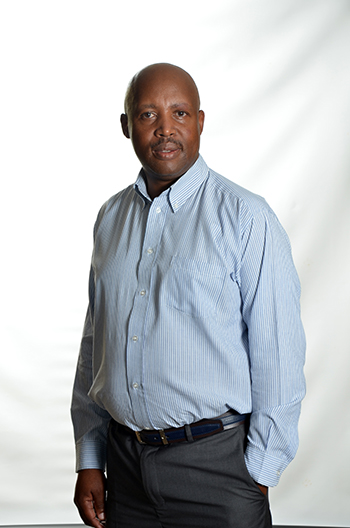Latest News Archive
Please select Category, Year, and then Month to display items
12 October 2020
|
Story Arina Engelbrecht
|
Photo Supplied
 Arina Engelbrecht from Organisational Development and Employee Well-being believes physical activity has a number of benefits for one’s health, including stress relief.
Arina Engelbrecht from Organisational Development and Employee Well-being believes physical activity has a number of benefits for one’s health, including stress relief.
Being physically active plays a big role in preventing the development of mental-health problems and in improving the quality of life of people experiencing mental-health problems.
Treatment for depression
Physical activity can be an alternative treatment for depression. It can be used as a stand-alone treatment or in combination with medication and/or psychological therapy. It promotes all kinds of changes in the brain, including neural growth, reduced inflammation, and new activity patterns are formed that promote feelings of calm and well-being. It releases endorphins – powerful chemicals in the brain that energise your spirit and make you feel good.
Physical activity can be very effective in relieving stress. Research in adults has found that physically active individuals tend to have lower stress levels compared to individuals who are less active. It also leads to improved sleep. When a person sleeps better and feels more rested, overall quality of life improves. They cope better with daily life stressors.
Reduce Alzheimer's risk
Regular physical activity can reduce your risk of developing Alzheimer's disease by up to 50%. It can also slow down further deterioration in those who have already started to develop cognitive problems. It stimulates the brain’s ability to maintain old connections as well as to make new ones.
A study asked people to rate their mood immediately after periods of physical activity (e.g. going for a walk/run, cycling, doing housework) and periods of inactivity (e.g. reading a book or watching television). Researchers found that participants felt more content, more awake, and calmer after being physically active compared to after periods of inactivity.
In conclusion, people who are physically active feel a sense of well-being, feel more energetic throughout the day, sleep better at night, have sharper memories, and feel more relaxed and positive about themselves and their lives.
“Being physically active not only changes your body, it changes your mind,
attitude, and your mood.” – Arina Engelbrecht
Meet our Council: Mr Rantooa Moji – passionate about the welfare of workers
2017-07-07

Mr Rantooa Moji, member of the UFS Council
Photo: Stephen Collett
Mr Rantooa Moji has recently joined the UFS Council by virtue of being chairperson of the university’s Institutional Forum (IF). The IF’s function is to advise Council in accordance with the Higher Education Act and UFS Statute.
Born and bred in Qwaqwa, Mr Moji is a junior lecturer in Chemistry at the university. He completed his BSc (Hons) in Chemistry at the then UNIN (Qwaqwa), which is now part of the UFS. He also completed an MA (HES) at the University of the Free State.
Fascinated with Chemistry
“I pursued science mainly due to my school background, but I also have a keen interest in the subject. The diverse applications of Chemistry in daily life have always fascinated me and that is why I chose to pursue it,” he says.
During his postgraduate studies at the UFS, Moji was exposed to education and management trends in higher education. He has subsequently become involved with labour relations issues through the personnel union Nehawu. He says he has a passion for the welfare of workers and therefore fulfils a number of roles in the union, including representing members in disciplinary and grievance hearings, being part of the negotiations team, and representing the union on a number of institutional committees, such as the Health Care Committee.
Passion for worker’s welfare
Says Mr Moji: “I feel that my experience as an academic and a union activist puts me in good stead to ensure that the views and aspirations of employees are taken into account in the Council’s deliberations and decision-making.”
Mr Moji is married, with two daughters and one son.